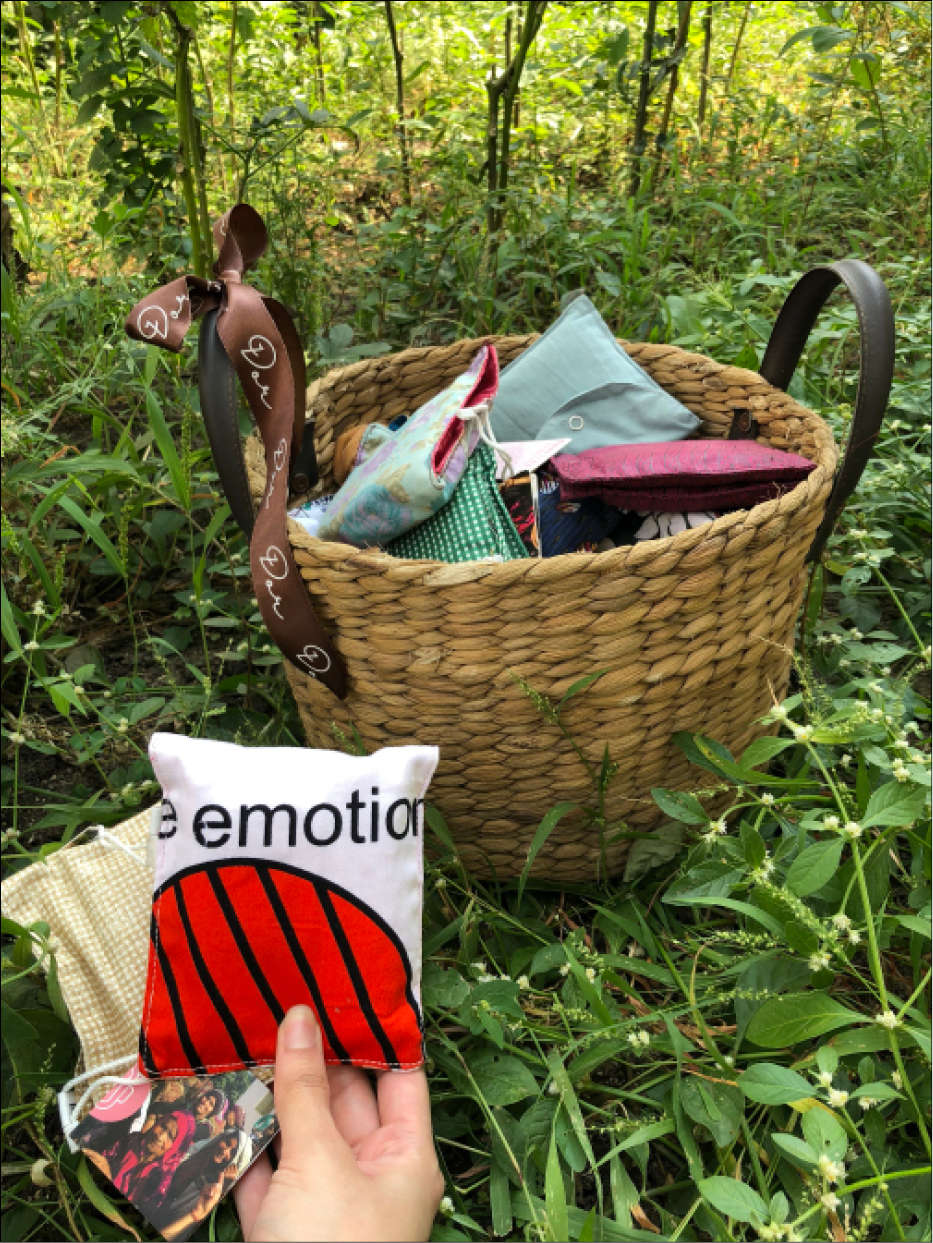“While many 15-year-olds were chasing their medical or engineering dreams, I was fascinated by the Arthashastra, an Indian treatise on statecraft written by Chanakya, especially the role rulers played in nurturing their people and protecting them”—a role that this young blue-blooded girl is playing with perfect humility in the distant region of Jamnia, Madhya Pradesh.
Shubhangana Jamnia, daughter of Rajkumar Dhruv Jamnia, along with her sister, Veerangana, is creating awareness of women’s healthcare, running a unique menstrual hygiene drive in the various villages that surround the city of Indore.


All set to take off for her postgraduate studies overseas, she and her sister are playing a dual role: keeping their craft legacy alive with Dor, a sustainable fashion brand that uses local textiles and embellishment techniques to create formal Indian ensembles. “My sister and I joined hands and conceptualised Dor to support rural empowerment. The name, which literally means thread, aims to connect people for a better tomorrow,” she explains. Spearheaded by Veerangana, an Economics graduate from St Xavier’s College, Mumbai, Dor is their way of combining fashion with a cause.
“After listening to our grandmother’s stories about the bygone era, about how the royal courts were the primary patrons of exquisite art and craft, we believe that it is because of this that India’s cultural heritage continues to be unparalleled. So much that even modern designers dig for inspiration from India’s past,” she says. Today, with changing times and needs, she endeavours to make sustainable fashion a part of everybody’s life and not just a mere concept. She strongly believes that sustainability is no longer just an option. Rather, it’s a responsibility and an obligation to make better choices.
The sisters showcase the collections through private shows. Money raised from these sales is then invested in sourcing sanitary pads for free distribution to the tribal women! “We have tied up with a Scotland-based company called Sanitree to distribute free pads in rural Madhya Pradesh. These pads are 100% biodegradable. When a girl is given our menstrual kit, she doesn’t have to buy anything for the duration of minimum 2 years as they’re completely reusable!” explains Shubhangana.
“My father has worked all his life for the people who live in the villages in Jamnia. He is my true inspiration,” she says. The princely family of Jamnia is from the Sangora Chauhan clan, who are historically strong allies of Prithviraj Chauhan and came to Madhya Pradesh from Nagor in Mewar. Jamnia is surrounded by villages where the Bhil and Gond tribals reside.
Shubhangana, well aware of these backward tribes, was further driven towards CSR when, while studying Political Science at St Xavier’s Mumbai, she read about “India’s chequered milieu and the unequivocal and ubiquitous impact public policy has on not just the political, economic and social landscape of a country but also the day to day life of its citizens.”
“The above learnings blazoned the melioristic approach and gave me the necessary impetus towards the field of policy making,” she says.
Currently pursuing an MSc in International Social and Public Policy at the London School of Economics, she feels that she wants to spend her life helping those who have been marginalized for centuries by the urban, privileged Indian. She shares,”Today, the number of villages with roads, shops, electricity, primary schools, primary healthcare centres and police stations may be increasing, but the quality of soil, water, air, light, plants, cattle and the human body in Indian villages is slowly deteriorating. Transforming villages into cities or filling them up with urban facilities isn’t the real empowerment of villages. Real empowerment would be when the people are themselves able to preserve their surrounding environment,” she says.
While menstrual hygiene is just the first cause taken up by Dor, their next aim is to reduce the impact of Covid-19 on child education in rural areas. “It’s so sad to see so many of them getting dragged back to child labour, taken out of schools, forced to work at home. Trust me, the impact of the pandemic is felt worse in rural India,” she shares.







